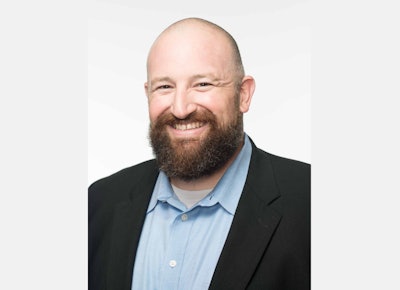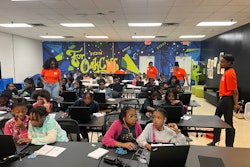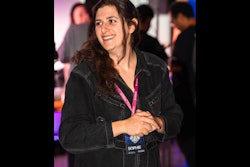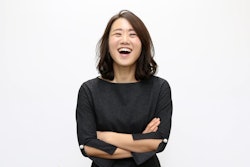
Paul Fletcher is the chief operating officer of AV and event technology for Freeman. He's based in Dallas.
How he got here: "My affinity for event tech started with a background in AV and programming—specifically designing and integrating technology for meetings and events. Early on, I was focused on building intuitive control systems and programming interfaces that made complex meeting environments run smoothly. When I joined Freeman, we had a small tool for managing and distributing presentations across events. That tool became a jumping-off point.
As AV and event technology became increasingly intertwined, we saw a real opportunity to integrate them more strategically and to elevate the experience beyond content management and speaker support. That evolution—seeing how tech can enhance the live experience—has kept me energized and fortunate to be part of some truly innovative implementations along the way."
What innovation means to him: "To me, innovation is an ongoing process of problem-solving. It’s not about chasing the latest tools but about focusing on the real need or challenge. When you start there, you open the door to fresh ideas and smarter solutions.
Staying innovative is essential. In a fast-evolving industry like ours, leaders have a responsibility to create space for curiosity and experimentation. That’s how meaningful progress happens—not by playing it safe, but by encouraging teams to ask questions, test new ideas, and rethink the way things have always been done.
I often draw inspiration from history. The people who challenged the status quo and saw problems through a completely different lens remind me that true innovation is always within reach. Sometimes, it just takes one bold idea to change everything."
Memorable moment: "One of the most memorable moments in my career was seeing how our teams responded when live events came to a sudden stop due to the global pandemic. The way people showed up—with innovation, creativity, and a strong sense of teamwork—was incredibly inspiring.
What stands out most is the transformation that happened during that time. Teams learned new ways to collaborate, uncovered strengths they didn’t know they had, and proved what’s possible when everyone is working toward the same goal. It was a challenging chapter for our industry, but it led to meaningful, lasting change. That resilience and unity is something I’ll always carry with me."
The tech advancements he's excited about right now: "While AI is the obvious headline—and it will absolutely transform our industry—I’m also excited about another major shift: the blurring of lines between technology and hardware. Especially in our world, we’re seeing everything become more connected and integrated. Video, lighting, and connectivity are no longer separate elements. They’re working together to create more dynamic, immersive experiences than ever before.
In the past, the focus was often on the hardware itself. Today, the hardware is simply the foundation. Advances in resolution, processing power, and seamless connectivity are allowing us to shift the focus where it belongs—on the experience and how people engage with it.
That evolution sets the stage perfectly for AI. Now that we have the infrastructure and integration in place, we can apply AI in meaningful ways to deepen interaction, personalize experiences, and truly elevate what live events can be."
What's next: "Right now, I’m deeply focused on automation and personalization. The event tech space offers incredible opportunities to use AI and connectivity in ways that adapt to audience needs in real time, making every interaction more meaningful.
By leveraging the touchpoints we already have with attendees, we can not only drive better ROI but also help clients achieve their goals in a much more impactful way. It's about creating experiences that feel more personal and connected, which in turn strengthens engagement and builds lasting relationships.
We’re just scratching the surface of what’s possible in this space, and the potential to transform how we deliver events—and how audiences experience them—is incredibly exciting. I’m eager to be part of that evolution."



















